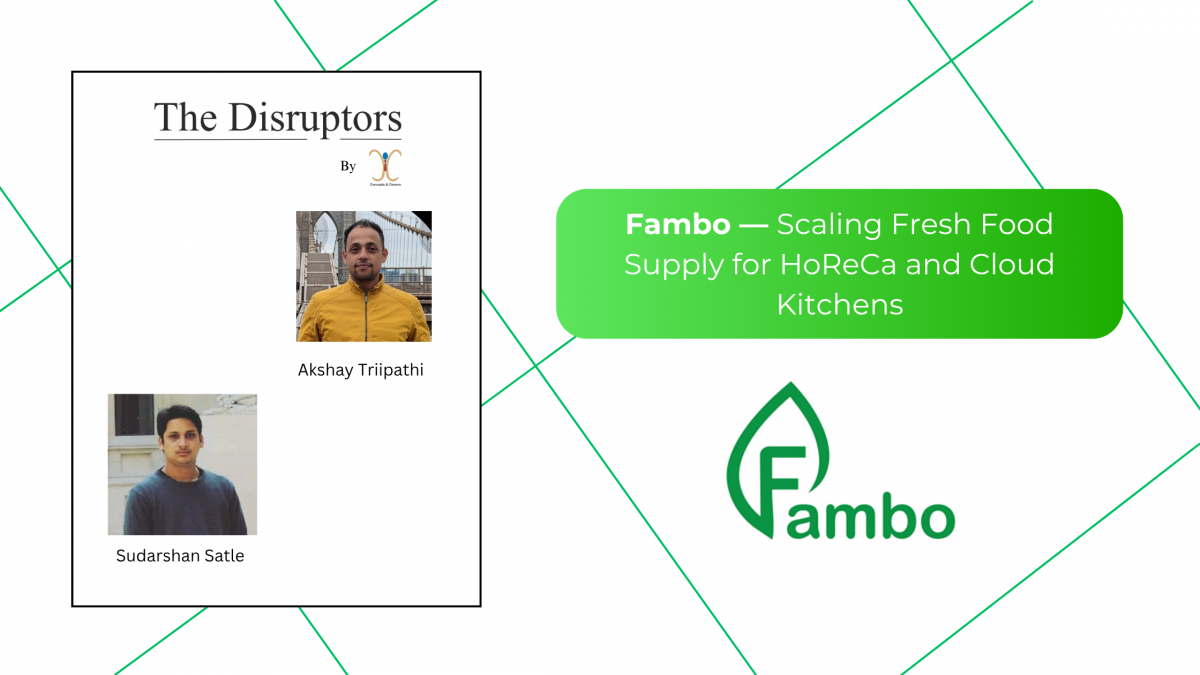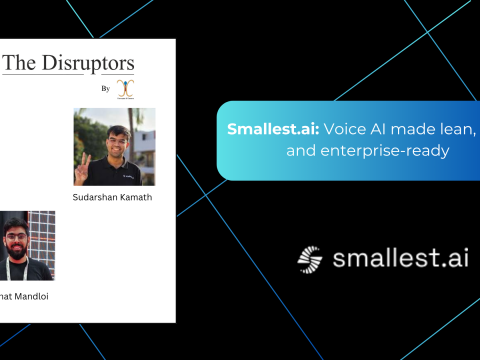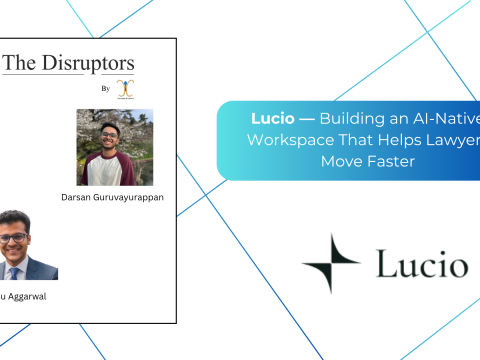- Have any questions?
- [email protected]
Fambo — Scaling Fresh Food Supply for HoReCa and Cloud Kitchens

Mastering Habits: A Comprehensive Analysis of “Atomic Habits: An Easy & Proven Way to Build Good Habits & Break Bad Ones” by James Clear
October 22, 2025
Journey of Self-Discovery: Exploring “Siddhartha” by Hermann Hesse
November 4, 2025Fambo is a tech-enabled food solutions company (headquartered in Noida) that provides fresh vegetables, fruits and semi-processed foods to hotels, restaurants, cloud kitchens and QSRs. Launched in 2022, the startup blends farm linkages, quality processing and distribution technology to reduce waste, improve consistency and serve high-volume food customers. Over 2024–2025 Fambo secured multiple funding rounds (including a pre-Series and a Series A/bridge injection) to expand geography, diversify product lines and strengthen technology and supply chain capabilities.
The product & business model (journalist’s lens)
Fambo’s core offer is straightforward but operationally hard: reliable, hygienic, ready-to-use produce and semi-processed food inputs delivered to commercial kitchens on a predictable cadence. Instead of selling directly to consumers, Fambo’s customers are businesses — hotels, QSRs, cloud kitchens, cafeterias and hospitality chains — who value consistent quality, food-safety compliance and on-time delivery. The company combines farm sourcing, value-added processing (pre-cuts, controlled packs) and refrigerated logistics to shorten lead times and reduce on-site prep. This B2B focus differentiates Fambo from retail-oriented grocers and positions it as a critical supply partner for high-volume food operators.
Founders, team & origins (people / operator lens)
Fambo was founded in 2022 by Akshay Kumar Tripathi, Sudarshan Satle and Sushanta Kumar. The founding team combines domain experience across food operations, procurement and logistics — skills needed to manage perishables at scale. Public profiles and company listings show Fambo as a small but growing team that is doubling down on tech and processing capacity to move from regional pilots to multi-city operations.
Market fit & why it’s disruptive (analyst lens)
Why does Fambo matter? Three structural shifts create demand for the company’s model:
- Rise of cloud kitchens & QSR expansion — they need predictable, scalable ingredient supply without the overhead of on-site procurement.
- Professionalization of food ops — chains demand food-safety protocols, consistent cut sizes and shelf-stable semi-processed SKUs to reduce labour and variation.
- Pressure on margins & waste — better upstream processing and demand forecasting reduces waste and cost for both suppliers and operators.
Fambo’s playbook—combining sourcing, mild processing and tech-enabled fulfillment—targets this nexus. If it can sustain unit economics while expanding cold-chain reach, it offers a repeatable model for India’s booming commercial food sector.
Traction & funding (investor lens)
Fambo’s financing story has been active in 2024–25. In January 2025 the startup closed a significant pre-Series round (reported at ~₹21 crore) led by EV2 Ventures with participation from investors including Rajesh Sawhney and other angels — capital aimed at capacity expansion and product-line growth.
Most recently (Oct 2025), Fambo raised another tranche (~₹21.55 crore) from AgriSURE Fund (managed by NABVENTURES) and EV2 Ventures to deepen its agri-food expansion, strengthen the technology stack and grow geographically. These rounds collectively give Fambo runway to scale processing capacity, invest in cold-chain logistics and pursue larger institutional customers.
What investors like: recurring B2B contracts, clear unit economics for semi-processed SKUs, and the ability to plug into expanding cloud-kitchen and QSR demand.
What to watch: gross margins after cold-chain buildout, customer concentration (single large buyers can create risk), and the capex cadence for processing centres.
Operations playbook & scaling levers (operator lens)
To scale reliably, Fambo should focus on three operational levers:
- Feedstock & farm partnerships: anchor long-term contracts with regional farms to ensure consistent raw supply and enable forward planning.
- Semi-automation in processing: invest in semi-automated chopping, washing and packaging lines to reduce per-unit labour and maintain food safety standards.
- Demand forecasting & distribution nodes: deploy regional micro-fulfillment centres (with chilling) close to demand clusters to cut delivery time and shrink spoilage.
Those operational investments are capital-intensive; the recent funding rounds appear explicitly designed to underwrite them.
Risks & mitigation
- Perishability & spoilage: tight cold-chain monitoring and local nodes mitigate transit risk.
- Margin pressure: scaling processing and automation reduces COGS; securing recurring contracts stabilises revenue.
- Customer concentration: diversify across HoReCa segments and secure long-term agreements to avoid dependence on a handful of buyers.
- Regulatory & food-safety compliance: invest in certifications (FSSAI, ISO, HACCP) and transparent traceability to win institutional deals.
Why Fambo is a disruptor (closing take)
Fambo’s disruption is incremental but meaningful — it modernizes a low-margin, logistics-heavy segment by bringing technology, processing discipline and farm linkages to the B2B food supply chain. In markets where cloud kitchens and organized foodservice are growing rapidly, companies that can deliver consistent, safe and labour-saving ingredient solutions will capture outsized share. With its recent funding and an operational roadmap that emphasizes processing and cold-chain nodes, Fambo is positioned to be one of the practical enablers of India’s next wave of commercial food scaling.





